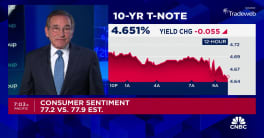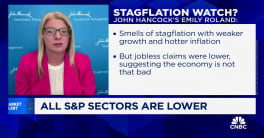There were few surprises in the Personal Consumption and Expenditure (PCE) report released Friday, though economists say the data all points to weaker third-quarter results.
The personal consumption expenditures (PCE) core deflator, the Federal Reserve's preferred measure of inflation, came in line with expectations, advancing by 0.3% (0.273%) in July, and 2.4% (2.426%) on an annual basis, the U.S. Department of Commerce reported.
"Although the increase is a source of concern for the Fed, we believe that policymakers remain focused on the downside risks to growth and the fragility of the financial markets," economists from Calyon Capital Markets noted. "We expect that the FOMC will keep rates on hold until next year."
The PCE deflator rose 0.6% in the month, contributing to a 4.5% annual gain.
The report also showed a 0.7% month-over-month decrease in personal income in July, following a 0.1% gain in June and a 1.8% gain in May.
Total personal spending, which comprises roughly 70% of U.S. gross domestic product, rose 0.2%, a slower gain than the previous month's 0.6% increase and in line with expectations.
"U.S. personal spending growth for July has set a tough act for consumption in the third quarter," said Rob Carnell of ING bank. "At -0.4% in real terms in July, real spending in August and September is going to have to be extremely good for the third quarter as a whole not to register zero to negative growth."
He added that the latest real spending figure also highlights the second- quarter GDP figures for what they were, "a heavily distorted data set giving an unrealistically optimistic picture of the underlying strength of the economy. 3Q08 GDP should be more representative."
"Overall, there are a lot of negatives for consumption right now and precious few positives," said Paul Ashworth, senior U.S. economist from Capital Economics. "With consumption falling, we suspect that the overall economy will contract too even after allowing for the strength of exports."
Ian Shepherdson of HFE agreed, saying he suspects the worst is yet to come for U.S. consumers now that the tax refund effect is "more or less over." He forecasts a contraction in third-quarter real consumption.
Aside from weaker-than-expected income, the report was mostly in line and as such didn't generate much market reaction, noted David Ader, U.S. government bond strategist at RBS Greenwich. "The market is quite a bit firmer this morning, with this report adding some tone as the income figures point to slower spending but probably a bit of relief that the overall was not firmer. It's not about the data very much."
By Stephen Huebl and edited by Sarah Sussman







